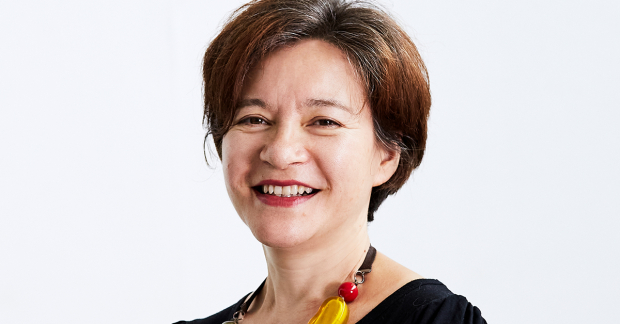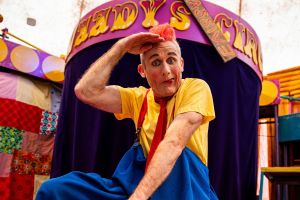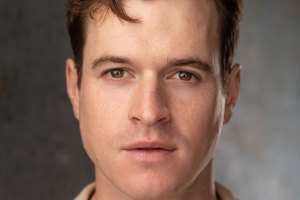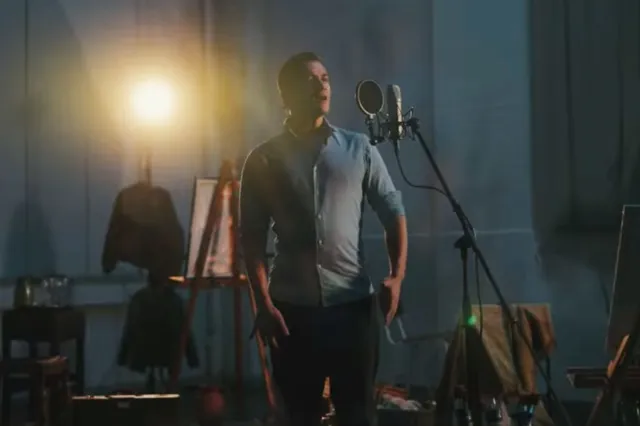Kumiko Mendl: 'There is a wealth of stories and voices that haven't even begun to be explored yet'
As part of our new Curtains for Theatre without You, we talk to industry leaders from across the theatre community

© Hannah Lemon
As part of our brand new Curtains For Theatre Without You campaign, we've been chatting to industry leaders about both their experiences during the pandemic and hopes for the future – here's our interview with Kumiko Mendl – artistic director of New Earth (the company formerly known as Yellow Earth).
1) 2020 and 2021 feel like, for many, a chance to recalibrate and refocus the theatre community in the wake of new conversations and new issues – is that something you're aware of at New Earth?
We have certainly been aware of the many conversations that have been taking place during this time and have been part of quite a number of them. This enforced pause has given us an opportunity to take a long hard look out our industry.
It's taken the pandemic to bring into sharp relief the precarity of our industry with 70% of our workforce made up of freelancers who's work literally disappeared overnight, but it's those newest to the industry who are also the most diverse that we are at most risk of loosing.
Our academy programmes that we brought forward to enable young BESEA's to participate in free training and development opportunities online became lifelines for many and has only emphasised how crucial this aspect of our work is.
There's no denying that the resurgence of the Black Lives Matter movement this year in the wake of the brutal killing of George Floyd has really penetrated those institutions that have been bastions and defenders of white privilege. Those conversations have been happening for a long time now but now can no longer be ignored.
Important initiatives such as Inc Arts Speak-Listen-Reset have been vital for all global majority artists within our sector. The Freelance TaskForce and Freelancers Make Theatre have given freelancers agency and a voice and new leaders speaking up for the under represented in all areas of theatre have emerged.
We all work in a complex ecology and we all need to play our part to ensure we can create a more equitable and accessible theatre community for the future.
2) What are you relishing the most about the new year?
News of a vaccine has really lifted the spirits and although it's going to be a while before we can return to a full live theatre experience it feels like there's an end in sight. Watch this space for touring news from us!
3) Next year, you'll have been artistic director of the company for a full decade – what changes and conversations have been most prevalent during your tenure so far?
For us it's always been about providing opportunities for British East and Southeast Asian (BESEA) artists and creatives and bringing the voices and stories of BESEA's to audiences across the country. Whose stories are being told and by whom has become a big conversation in recent times and the fact that access to theatre has never been an equitable one, is finally gaining some recognition.
4) Yellow Earth celebrated 25 years as a company – what are you looking forward to most with regards to the next 25 years (and beyond!) of New Earth?
New Earth stands for new beginnings, new possibilities, new terrains.
We want to be able to serve our communities to the best of our abilities and this period has given us a moment to take stock and listen to our own community of artists and what they need as well as from BESEA communities many of whom have been adversely affected by the pandemic.
There is a wealth of stories and voices that haven't even begun to be explored yet and I am excited by the talent, drive and confidence I see in the new generation of BESEA artists. We want to ensure there is work for them, that theatre is a ‘viable' option and that we can continue to influence the work that's made and seen in our theatres
5) What new ways do you think theatre companies can engage with the wider UK community as we come (hopefully) out of the intense part of the pandemic and into the new year?
We have all had to find new ways to connect and remain creative during this period and I believe theatre has an important part to play in the nation's recovery. This is much to learn and digest from this period. On the one hand we have found new ways to connect digitally but we also know that there is sizable percentage of the country who do not have regular access to the internet. We need to be aware of both and work locally as well as nationally and internationally.












